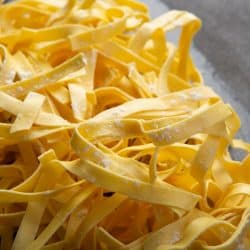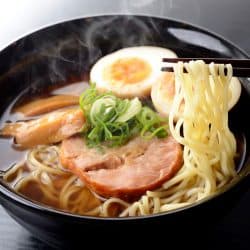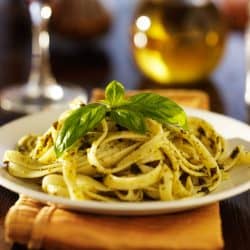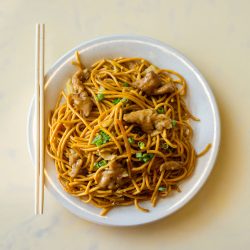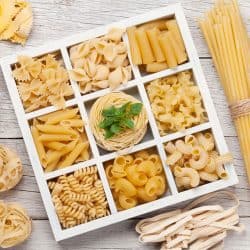Everybody loves noodles or pasta, well OK, most everybody I know, at least! There are so many different types of noodles, sauces, seasonings, and multiple preferences for preparing them. You have egg, gluten-free, yolk-free, veggie, flour, and the noodle list goes on and on. So, can you freeze noodles? We've thoroughly looked at cooking techniques and storage techniques for all types of noodles to find out whether they'll freeze well or not.
Yes, fresh noodles will last frozen for up to four months. Cooked noodles will keep frozen for up to eight months. Freezing dry noodles is unnecessary, as they will stay good on a dry shelf for a year or more.
Please, stay with us as this article will teach you how to manage your flour noodles for freezing and cooking. We won't provide you a recipe for cooking the noodles but will inform you on how to care for them before and after you've prepared them.
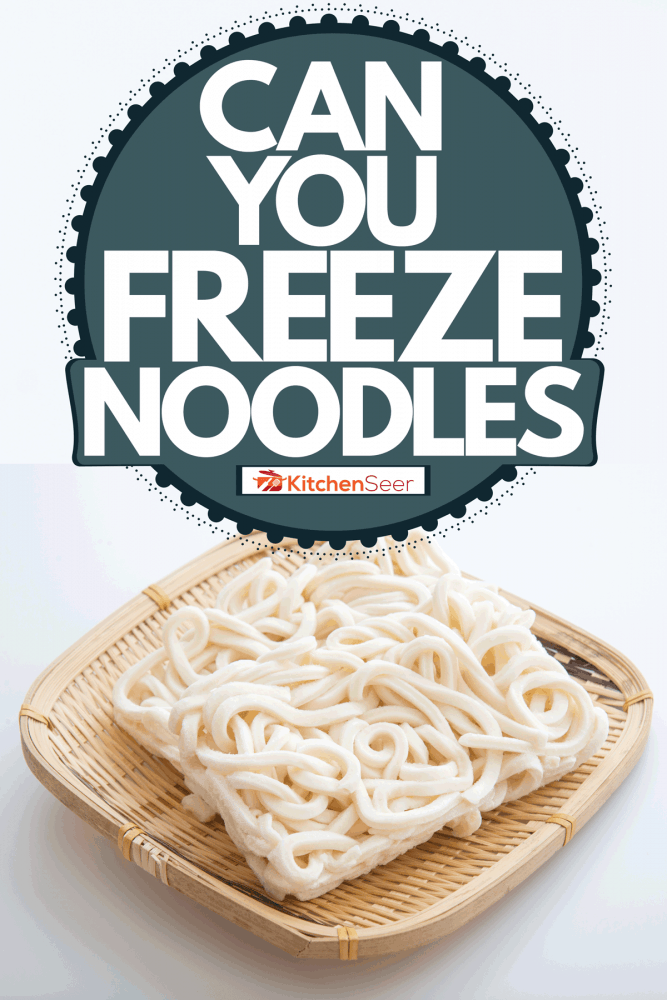
Can You Freeze Pasta with Sauce On It?
It is not recommended to freeze noodles with sauce. Store the sauce and noodles separately because they take different times to defrost and reheat. First, cook the noodles to al dente, Italian term loosely meaning "firm to the bite." If the noodles are over-cooked, they will turn to mush when you defrost and reheat them. Next, run the noodles under cold water until cooled, then drizzle olive oil over the top to prevent them from sticking.
Separate long noodles into small nest-like piles on a cookie sheet to make them faster to defrost and easier to handle. Transfer your noodles to an air-tight container or a plastic Ziplock bag. The average life of cooked, store-bought dried noodles in the freezer is eight months and four months for made-from-scratch noodles.
How Do You Defrost Cooked Pasta?
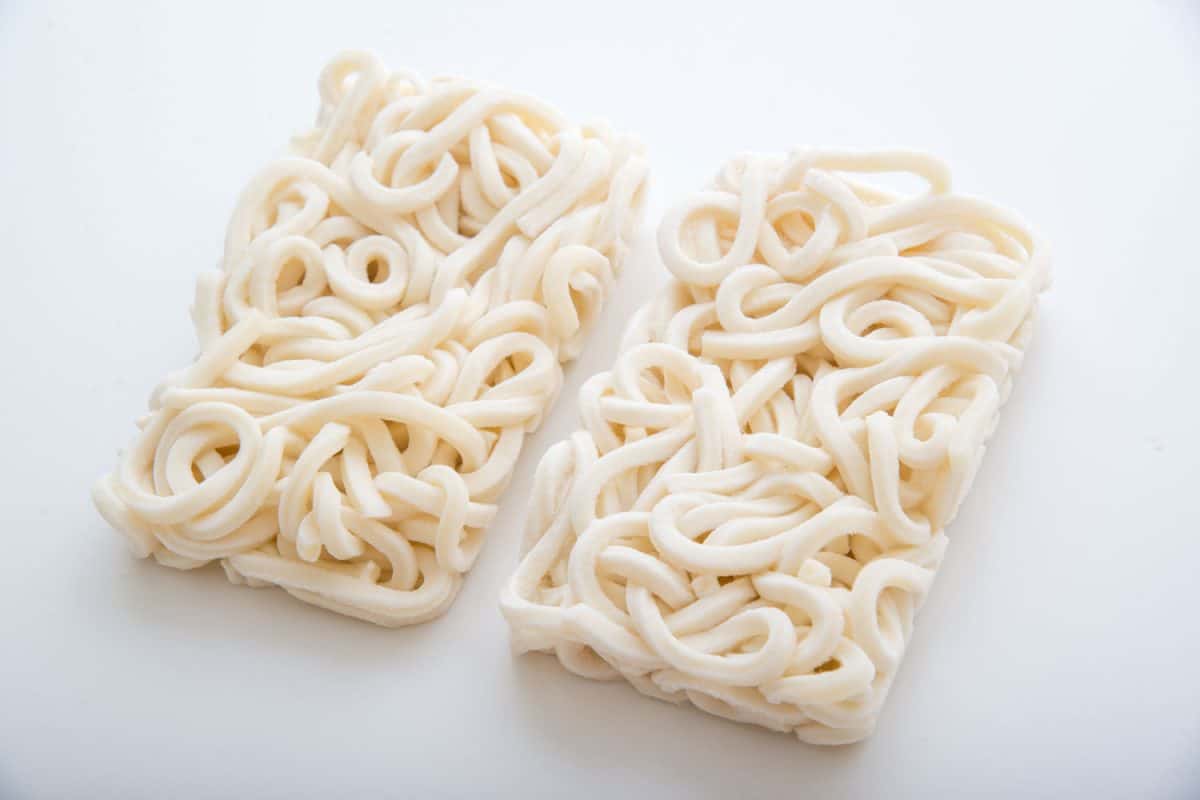
To defrost frozen cooked noodles, drop frozen noodles in a large pot of boiling salted water and boil for around 30 seconds; do not defrost. If not thoroughly heated, continue boiling in 15-second increments.
You can thaw your noodles in the fridge overnight and then reheat them in a frying pan with your sauce the next day. You can also place frozen noodles in a colander, run them under cool water until defrosted, then add to heated pasta sauce. This is my personal favorite method!
How Long Do Cooked Noodles Last in the Fridge?
Properly stored, cooked noodles will last in the fridge for three to five days. Be sure to use airtight containers or zip lock bags to safely seal out the lingering fridge odors and keep the noodle flavor fresher. Do not leave cooked noodles exposed to room temperature for longer than two hours due to bacterial growth. ServSafe® National Restaurant Association Certification Program informs us that food only stays good between 40° and 140° Fahrenheit.
Refrigerate your cooked noodles as soon as possible after cooking. When preparing your cooked noodles, be sure to check for unusual odors or the appearance of mold. Discard if anything seems off, as eating spoiled food can make you sick.
Is it Better to Freeze or Dry Fresh Pasta?
Fresh noodles can be either frozen or dried for storage purposes. Normal shelf-life is between two and six months for dried noodles and four months for cooked frozen noodles.
First, dry your noodles completely for 24 hours. Coat noodles with flour; the flour absorbs moisture. Lay flat and in single-file on a baking sheet or cooling rack. Your noodle is ready when it breaks in half when bent. Once dried, place noodles in an airtight container for two to six months in a cool, dry place or up to four months in the freezer. The best way to keep your fresh noodles depends entirely on how long you’d like to keep them.
Read "Do You Need A Pasta Drying Rack? [Here are some alternatives]" for more great tips!
How Do You Cook Frozen Noodles?
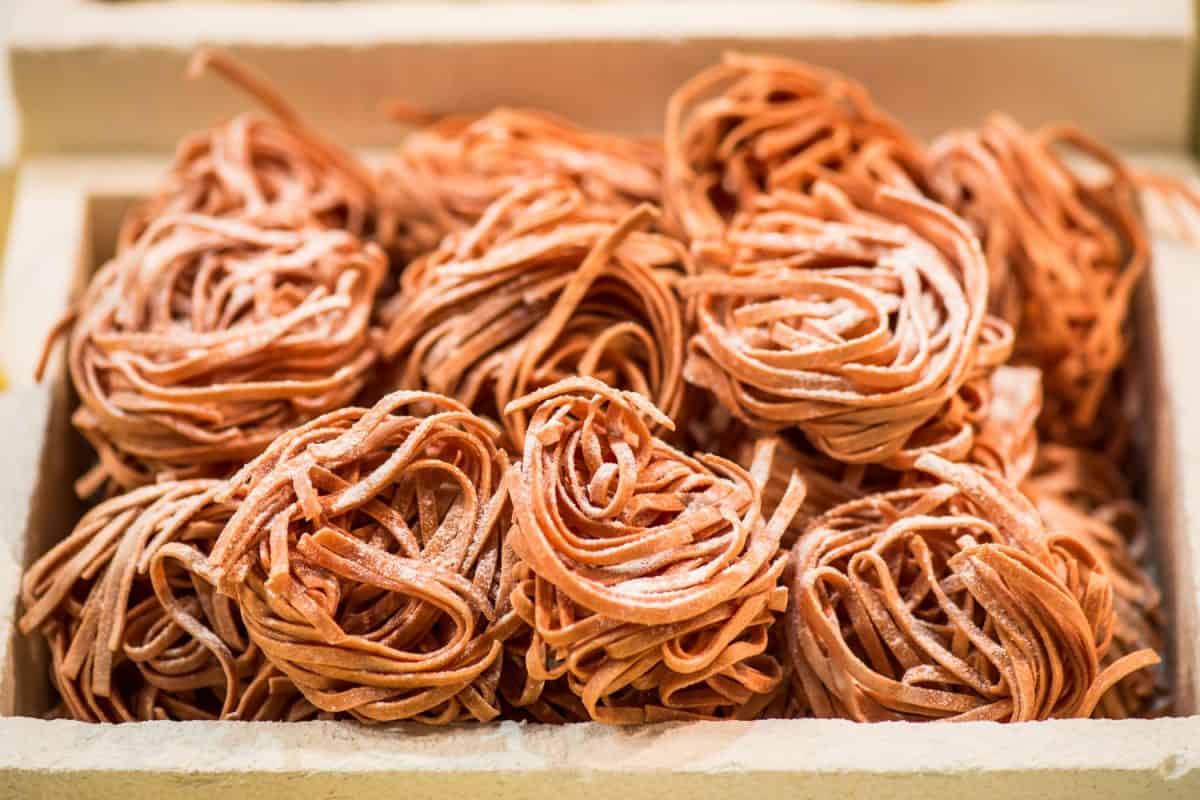
Now, here comes the fun and tastiest part! There are several ways to cook frozen noodles, and we'll explain how. You can boil, bake, or microwave them.
To boil, place in a large pot of salted water. Drop noodles in the pot and boil for roughly 30 seconds, with additional 15 seconds increments after that. There is no need to defrost the noodles first, as doing that can make them mushy.
Try baking them if that’s what you prefer. Place frozen noodles in an oven-safe dish and oil the bottom of the dish if desired. Pour sauce on top and cover with aluminum foil. Bake at 350 degrees F for 20 minutes.
If you’re short on time, you can always depend on the microwave. Place the frozen noodles in a microwave-safe dish and stir in a tablespoon or two of water. Cover the dish and set the microwave timer for one minute. Stir noodles and add additional one minute increments of cooking if needed. Mix with sauce, and you have a delicious meal in less than five minutes!
What Type of Noodles Freeze the Best?
Most noodles will freeze well if the proper steps are followed. Dried, store-bought noodles do not need to be frozen as they will last a year sealed in a cool, dry place. Cooked, store-bought noodles freeze the best, staying good for up to eight months, and handmade cooked noodles will stay good in the freezer for up to four months.
It also depends on the type of noodle as there are so many variations that it’s hard to say which one kind will freeze best. Penne noodles, for example, probably freeze the best due to their hollow cylinder shape, don’t tangle up, and freeze more uniformly.
Of course, it is always better to eat your noodles right away! Water expands when frozen, and flavor is lost in the process; texture can also be compromised. For this reason, we'd suggest eating noodles directly after cooking them; a lasagna dish being the only exception. Freezing lasagna once it has been assembled but before it has been baked helps to maintain the cheese and noodle texture and prevents it from getting soggy. Read "What Size Pan Is Best For Lasagna?" for more great tips on this dish.
Final Thoughts
After all this talk about cooking and freezing fresh noodles, you may be hankering to make your own homemade pasta dish. Now you should feel comfortable on how to care for your noodles once you make them. You know that you shouldn’t freeze your noodles and sauce together because of different defrost and reheating times. Once frozen or refrigerated, you know how to defrost properly and the best ways to cook them. You know how long noodles should be kept in the freezer and refrigerator and how to notice when they have gone bad.

